On Wednesday, 12 October 2022, PHBS-UK had the pleasure of having Mr Richard Fu, a leading commodities professional with over 30 years of experience in futures and physical trading across metals, energy, and agricultural products to speak to our staff and students on two major themes of the world today – energy transition in a world twisted by the pandemic, economic crises, war, and drought; and a globalised world that is turning to regionalisation.
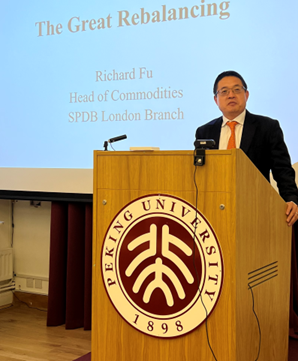
Currently, in a global economy still heavily reliant on fossil, renewables and electric vehicles (EV) lead the global energy transition. In other words, a permanent reduction in fossil fuel usage would mean a permanent increase in demand for metals. However, as Mr Fu cautioned, renewable energy is still not enough to power the world as yet. In addition, for the energy transition, a rather painful one exacerbated by the war, there are a couple of other variables to consider, namely, how the pandemic reset the world and the increased demand versus the tightening supply (i.e., higher cost) of metals.
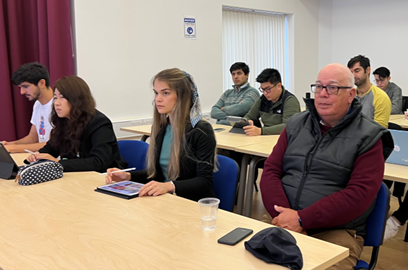
This energy transition is also influenced by a myriad of factors such as global economic cycle, the monetary and fiscal policies in major economies, ESG and energy consumption trends, geopolitical risks, as well as changes in supply chain logistics from major producing countries. As a result, the current high energy prices stimulated investment into renewable energy and created a short term high margin for the fossil fuel industry. With regards to metals, Mr Fu illustrated the importance of the metals supply chain by giving the following example: before the pandemic, the supply and demand was relatively stable in the long term; However, with the current global supply chain disruption, the prices of metals fluctuate with US interest rates and the Federal reserve balance sheet, thus affecting global GDP growth. Thus, if the consumption of metal grow as predicted, there would not be enough metals.
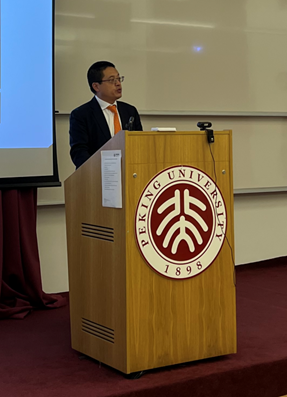
In summary, Mr Fu concluded that if the world enters a recession, it may disrupt the energy transition trend as it would mean higher costs for industries focusing on being ESG compliant. To mitigate and manage the risks involved in energy transition, Mr Fu suggested that investors should manage their margins as well as monitor the critical risk factors such as credit risk and market risk. He suggested that it is necessary to reduce lower cash flow volatility in the short term and maximise capital returns at a certain price. By not hedging, Mr Fu cautioned that investors would risk full exposure to market risks. While hedging can potentially cause a short-term liquidity crunch, it is definitely beneficial in the long term as management can focus on the development of core competencies and maximise capital return.
In the second half of his seminar, Mr Fu touched on another hot topic – globalisation to regionalisation. As we all know, international trade is a key source of economic prosperity but recent destablising global events such as the pandemic and Russia-Ukraine war, has exposed international trade’s many vulnerabilities. Though examining the world’s 10 largest economies, Mr Fu has established a couple of indicators that support the increasing trend of regionalisation: increasing global trade between nations on the same continent and increasing global trade between nations with a common border.
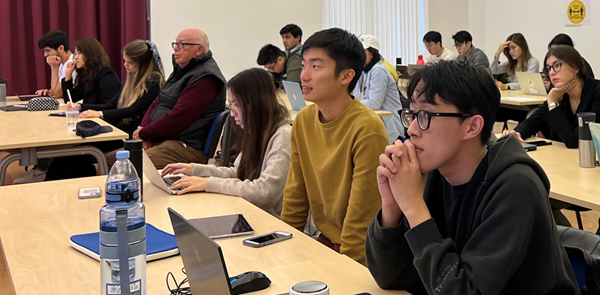
The process of regionalisation has been underway for some time as exemplified by Donald Trump’s rejection of the Trans-Pacific Partnership trade pact, his initiation of a trade war against both allies and adversaries; on the other side of the pond, we see Brexit as another expression of this trend. With the aftershocks of the pandemic adding momentum to this trend, it is not unexpected to see businesses in Europe and US shifting their critical supply lines towards local supplies. Couple that with increasing geopolitical tension, it is not surprising to see a more segmented world, comprising of three major trading zones – the US, Europe and Africa, an Asia. Within these zones, capital and goods will be able to move relatively easily but outside them, trade would be governed by regional governance frameworks. In conclusion, as we emerge from the pandemic, the world is a radically different place, albeit a precarious in terms of its economic outlook. As we navigate our way in these choppy waters, we must as always, hope for the best while preparing for the worst. As such is the resilience of man.
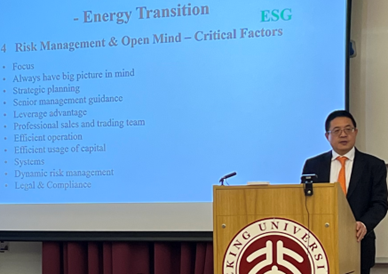
We thank Mr Fu for sharing with us his vast knowledge and experience in the energy and commodities market. It was a very insightful seminar which allowed us to examine the very pressing issues that are plaguing the world post pandemic – energy and economy. We are immensely grateful to Mr Fu for opening our minds to this topic and giving us the knowledge to question and examine the world around us.





